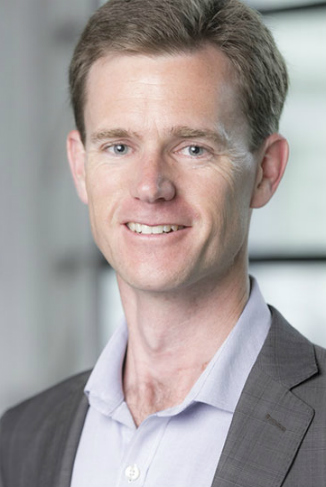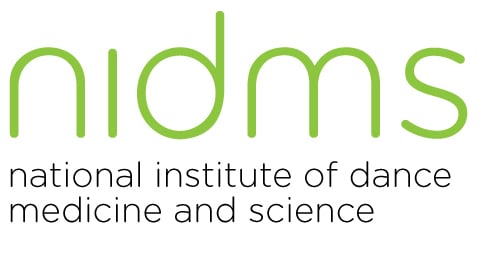Trinity Laban delves into the world of Music Science with the launch of a new musician screening programme. The conservatoire is known internationally as a leader in Dance Science and in 2003 Laban was the first institution in the world to offer an MSc in the subject. Trinity Laban is also one of the first dance training institutions to pilot screening in our undergraduate programme – assessing students with a range of criteria, with the aim of enhancing performer potential and preventing and managing injury.
Despite research suggesting that screening musicians could be vital in the prevention and treatment of injury, there is currently no screening model for musicians. In September 2009, Trinity Laban recruited Dr Terry Clark as a Trinity Laban Research Fellow to help develop this field.
| Dr Terry Clark specialises in the examination of performance enhancement in classical musicians. He has put together a comprehensive screening programme for musicians that will be launched at Trinity Laban in September. Amid the preparations, he took time out to chat to Mary-Kate Connolly about his exciting work. |  |
MKC: What are the main aims of your research at Trinity Laban?
TC: The title of the research (for which we received a grant of over £50,000 from the Leverhulme Trust) is ‘Music and Dance Science: Optimising Performance Potential via an inter-disciplinary Music and Dance Screening and Profiling Programme’. Really my work is focused on expanding the screening programme across the whole institution and investigating whether we can develop it further. Exploring issues related to the health and well-being of musicians is also important.
MKC: So why screen musicians?
TC: We know that playing-related injuries are rife among musicians, but most research comes from the medical sector and focuses on identifying and treating injuries rather than predicting and preventing them.
MKC: What is the culture surrounding injury and pain within the professional music industry?
TC: One of the biggest challenges we face is the stigma surrounding pain and injury. Injury can be seen as a sign of weakness and unreliability and as a result, musicians are often scared to tell people about their injuries. Pain is often viewed as synonymous with musicianship, and there’s a culture among musicians where professionals just continue regardless. Students prefer not to think about it and hope it won’t happen to them, and long-term preventative strategies are rarely discussed.
MKC: How do you think screening will help to address this?
TC: We’re striving to raise awareness of the different factors that can affect health and performance ability. As well as communicating this to the wider music community, we aim to provide our students with knowledge of their own bodies to help them predict potential injuries. Our long-term objective is to equip them with the mental and physical skills to cope with, and enhance, performance.
MKC: How do you plan to achieve this?
TC: After the actual screening, we can develop programmes to address the kinds of issues that may be prevalent, for example core stability, strength, postural alignment and coping strategies.
MKC: What makes Trinity Laban a particularly appropriate environment for this research?
TC: Unique to Trinity Laban is the extensive health services we have in-house. We have a diverse treatment centre and research-active Dance Science team who have a wealth of expertise in empirical and scientific work. So drawing from the screening, we can keep track of certain injuries and use that to develop preventative programmes within our training.
MKC: How has the uptake been so far?
TC: We did some initial screening earlier this year which allowed us to develop and refine the new programme. We’re really hoping students will see the benefits of screening and sign up for it at the start of term!
MKC: What sort of feedback can students expect?
TC: Students will gain a better understanding of their physical make-up and how certain factors might impact on their musicianship. Students will have one-to-one sessions with health and movement professionals to discuss any injuries or concerns they may have. In many cases, they will then be provided with a set of recommendations which might include stretching techniques, fitness and stability exercises, or referrals to relevant treatments for more serious concerns.
Of course it’s vital that there is good communication between the research and the actual application and training within our conservatoire. We really want to encourage discussion and collaboration with teaching faculty to achieve this – hopefully screening will be viewed as an integral and beneficial element of a musician’s training. The biggest objective of this research is to inform how musicians are trained.
MKC: What areas are you focusing on in screening?
TC: We’re looking at practice behaviours as well as attitudes and behaviours surrounding health such as exercise and nutrition. We’re also measuring things like hyper-mobility and upper body and core strength. Finally we will be carrying out playing assessments to look at how the musicians interact with their instruments, or voices in the case of singers.
MKC: This project is called ‘Music and Dance Science’; inherent within the research is the aim for dialogue and collaboration between music and dance. How does this feed into the project?
TC: So far there is considerably more research of this nature in dance. This means that we are able to draw on previous work in the dance field and make it applicable to musicians. Through this research and the growing collaboration between music and dance at Trinity Laban, we hope to contribute to the development of music professionals at the forefront of their art; artists that are bodily aware and informed, and musicians who can enjoy health and longevity in their careers.
The new musicians’ screening programme will be launched in September. For further information, please contact Terry Clark: T.Clark@trinitylaban.ac.uk
Trinity Laban is a partner of:
Contact Dance Science
Please contact us at dancescience@trinitylaban.ac.uk

